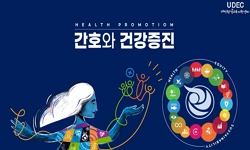Purpose: This paper has examined whether there is an advantage of adopting a New Compact underpinned by a marginal aid framework. Originality: As Gavi embarks on its next strategic phase, “Gavi 6.0,” it faces multiple challenges: shifting donor p...
http://chineseinput.net/에서 pinyin(병음)방식으로 중국어를 변환할 수 있습니다.
변환된 중국어를 복사하여 사용하시면 됩니다.
- 中文 을 입력하시려면 zhongwen을 입력하시고 space를누르시면됩니다.
- 北京 을 입력하시려면 beijing을 입력하시고 space를 누르시면 됩니다.
https://www.riss.kr/link?id=A109505451
- 저자
- 발행기관
- 학술지명
- 권호사항
-
발행연도
2024
-
작성언어
-
- 주제어
-
KDC
349
-
등재정보
KCI등재
-
자료형태
학술저널
-
수록면
61-86(26쪽)
- DOI식별코드
- 제공처
-
0
상세조회 -
0
다운로드
부가정보
다국어 초록 (Multilingual Abstract)
Originality: As Gavi embarks on its next strategic phase, “Gavi 6.0,” it faces multiple challenges: shifting donor priorities, rising costs of new vaccines, incomplete vaccine coverage, and economic constraints in supported countries. Additionally, health ministries face increasing pressures related to universal health coverage, complex disease burdens, and fragmented aid systems.
Methodology: The Marginal aid framework used to discuss five policy shifts for Gavi to consider in order to deliver a New Compact with partner countries most effectively.
Result: The New Compact is based on three pillars that reflect a shared responsibility between a country and its donors: (1) evidence-informed, locally led prioritization; (2) domestic first resource allocation with donor support for marginally cost-effective interventions; and (3) consolidated supplementary aid.
Conclusions and Implication: This paper suggest five policy shifts for Gavi to enhance the New Compact’s effectiveness: focusing country financing on high priority vaccines while using Gavi funds at the margins; ensuring comprehensive coverage for underserved populations; improving donor coordination; adapting pooled procurement; and strengthening market shaping through value-based commitments. This research conclude with recommendations for Gavi’s transition, emphasizing the need for strategic dialogue and adaptive policies to align with the New Compact and achieve sustainable vaccination outcome.
Purpose: This paper has examined whether there is an advantage of adopting a New Compact underpinned by a marginal aid framework.
Originality: As Gavi embarks on its next strategic phase, “Gavi 6.0,” it faces multiple challenges: shifting donor priorities, rising costs of new vaccines, incomplete vaccine coverage, and economic constraints in supported countries. Additionally, health ministries face increasing pressures related to universal health coverage, complex disease burdens, and fragmented aid systems.
Methodology: The Marginal aid framework used to discuss five policy shifts for Gavi to consider in order to deliver a New Compact with partner countries most effectively.
Result: The New Compact is based on three pillars that reflect a shared responsibility between a country and its donors: (1) evidence-informed, locally led prioritization; (2) domestic first resource allocation with donor support for marginally cost-effective interventions; and (3) consolidated supplementary aid.
Conclusions and Implication: This paper suggest five policy shifts for Gavi to enhance the New Compact’s effectiveness: focusing country financing on high priority vaccines while using Gavi funds at the margins; ensuring comprehensive coverage for underserved populations; improving donor coordination; adapting pooled procurement; and strengthening market shaping through value-based commitments. This research conclude with recommendations for Gavi’s transition, emphasizing the need for strategic dialogue and adaptive policies to align with the New Compact and achieve sustainable vaccination outcome.
목차 (Table of Contents)
- Ⅰ. Summary
- Ⅱ. Challenges Facing Gavi and Partner Countries
- Ⅲ. A New Compact for Financing Health Services
- Ⅳ. How a New Compact could Work
- Ⅴ. Policy Shifts for a New Compact
- Ⅰ. Summary
- Ⅱ. Challenges Facing Gavi and Partner Countries
- Ⅲ. A New Compact for Financing Health Services
- Ⅳ. How a New Compact could Work
- Ⅴ. Policy Shifts for a New Compact
- Ⅵ. Recommendations for Implementing a New Compact Pilot
- Ⅶ. Charting the Next Steps
- References
동일학술지(권/호) 다른 논문
-
What Is Day Zero Financing? A Global Security Perspective for Pandemic Response
- 국제개발협력학회
- Ruchir Agarwal(Ruchir Agarwal)
- 2024
- KCI등재
-
Economic Evaluation of COVID-19 ODA Interventions with Equity in Focus: A Methodological Reflection
- 국제개발협력학회
- Eunmi Song
- 2024
- KCI등재
-
The Malaria Vaccination Era: How Endemic Countries and Donors Can Make the Most of R21
- 국제개발협력학회
- Tom Drake(Tom Drake)
- 2024
- KCI등재
-
The Global Response to Mpox: A Feeling of Déjà Vu?
- 국제개발협력학회
- Janeen Madan Keller(Janeen Madan Keller)
- 2024
- KCI등재





 스콜라
스콜라





